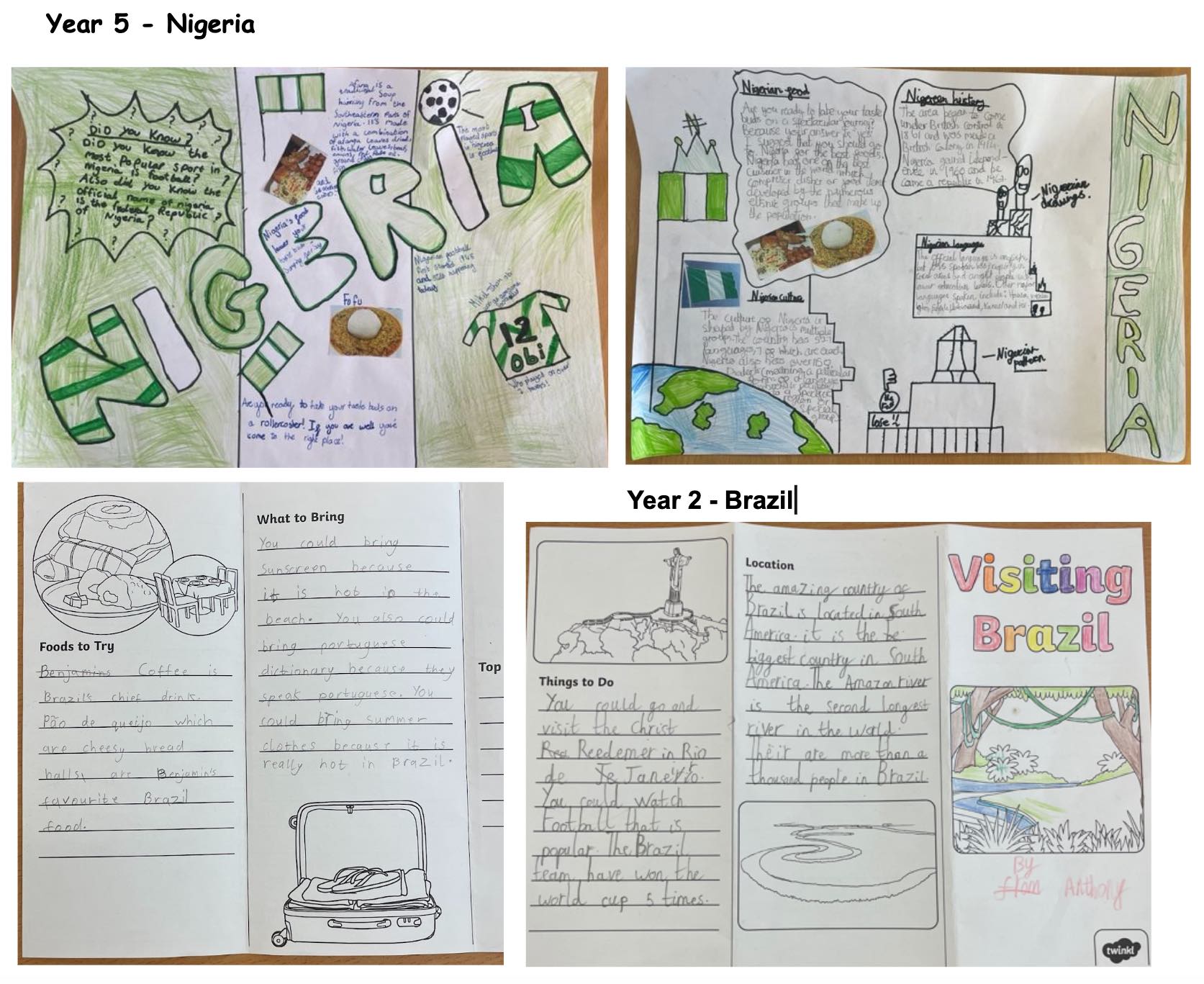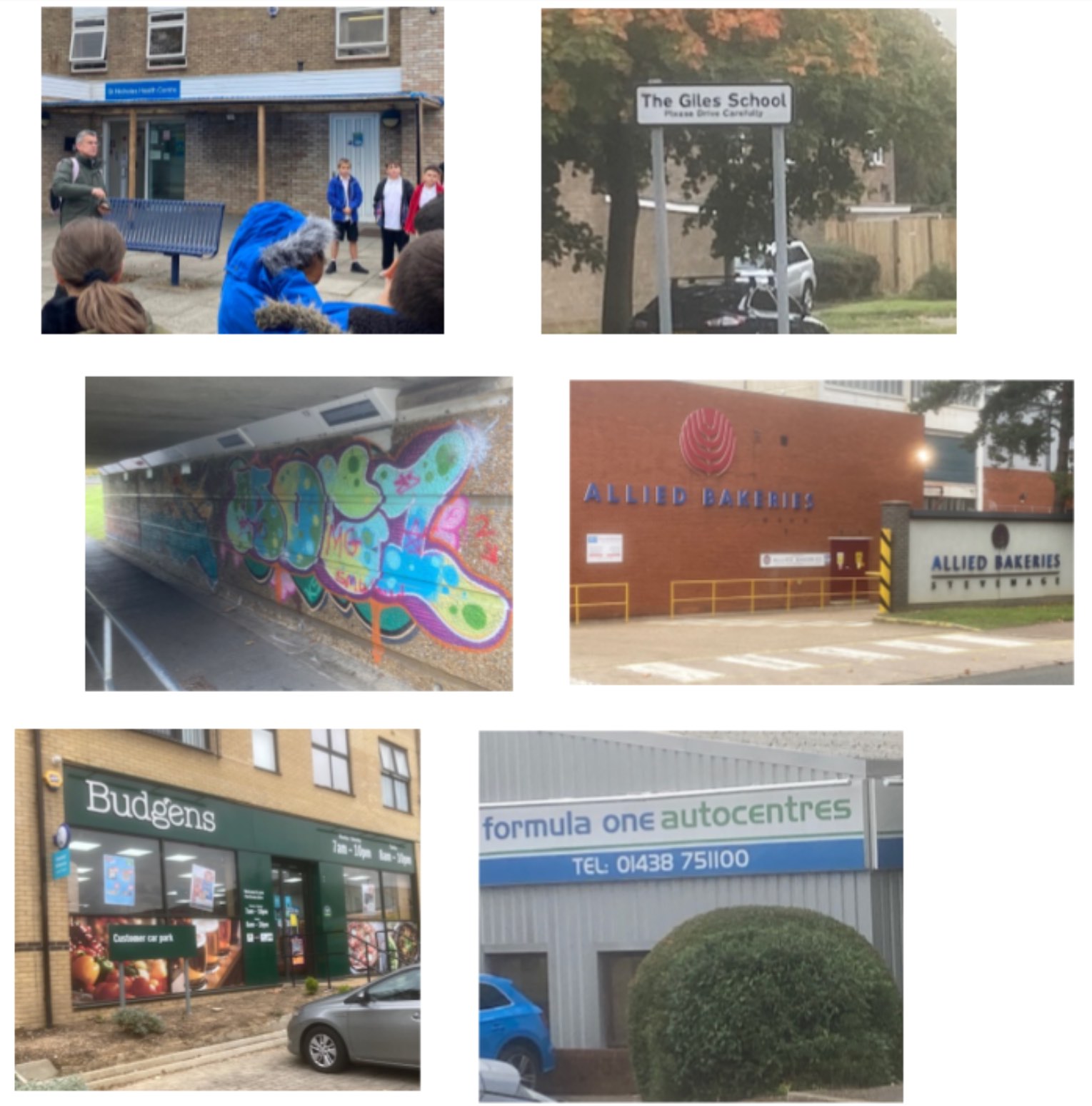

Curriculum / Geography
'The study of Geography is about more than just memorising places on a map. It's about understanding the complexity of our world, appreciating the diversity of cultures that exists across continents. And in the end, it's about using all that knowledge to help bridge divides and bring people together'
'Barack Obama'
At the Leys, through our Geography teaching, we aim to inspire children to explore not only their immediate environment but the world around them. We want to encourage children to build an interest and passion to develop their knowledge and understanding of different places; their features and their characteristics.As children grow, we strive to encourage them to become knowledgeable and active citizens of their community and the world beyond them and encourage them to know that they have an impact on the world.
The progressive geography curriculum taught at The Leys sets out clear objectives which aids and supports our vision and teaching. Children learn a variety of topics, including human and physical features of an area (locally and worldwide), cultural and environmental geography. We focus on enrichment activities which encourage an enquiry-based style of learning to allow pupils to question, investigate and think critically about the world, people and cultures around them.
Here at The Leys we focus our Geography lessons on using and building geographical skills. We have a strong focus on practical fieldwork where map skills, compass work and exploration is taught to allow pupils to explore and make sense of the world.
At the Leys we hope to equip all pupils with the skills, knowledge and ability to become independent learners who understand their world. By the end of Year 6 we we strive to ensure pupils:
Are knowledgeable about their own country and the rest of the world
Explore their surroundings, recognising changes.
Become researchers and critical thinkers about the world around them
Show a wide range of skills to expand their geographical knowledge (map skills, compass work and field work).
Our School
Our local area
Magical mapping
Let's go to China
Extreme Earth
The UK
Somewhere to settle
All around the world
Exploring Eastern Europe
Enough for Everyone
Trade and Economics
The Americas
“We have been learning that the world has 7 continents. I’d like to learn more about Asia because that’s the house I’m in!”
Albie - Year 2
“We are learning about the UK, we live there! The capital of England is London and that’s where Big Ben is. I love Geography because it teaches me about lots of different countries.”
Kian - Year 3
"Settlements are where people live like towns. They need houses, access to shops, food, entertainment and water. I like to explore in Geography.”
Louie - Year 4
“We are learning about global issues and whether population increase is good or bad which could lead to overpopulation which will affect the economy. I like Geography because it’s learning about the past and how that will affect the future of the environment.”
Shiv - Year 5
Olympic Week Exhibition
International Week 2023

October 2022 - Year 6 local walk to look at and discuss land use around our area.

www.bbc.co.uk/weather
Television broadcasters' geography sites, up to date weather forecasts
www.bbc.co.uk/bitesize/link
Hop on Captain Carrot’s ship and explore the world with the Pirate Bunnies!
www.news.bbc.co.uk/cbbcnews/hi/world/default.stm
Newsround UK current events
www.news.bbc.co.uk/bitesizelink
Welcome to 'Race Across the Continents', explorer!The day has finally arrived for a brave group of explorers to join the ‘Race Across the Continents’, in their trusty hot air balloon.
https://www.schoolgen.co.nz
(Interesting website from New Zealand: links Geography to Science topics)
The children’s section has many useful facts, activities and animations and includes sections on: air, energy, land, climate change, people and lifestyles, resources and waste, water and wildlife.
http://www.environment-agency.gov.uk/fun/?lang=_e
An introduction for key stage 2 on how maps work and how to interpret them. It includes these 8 sections: starting mapping, symbols, compasses and directions, grid references, understanding scale, measuring distance, relief and contour lines and compass bearings.
http://mapzone.ordnancesurvey.co.uk/mapzone/index.html
Local street maps including a ‘find my nearest’ function, which can be used to locate features e.g. schools, list them and link them to a map.
http://www.upmystreet.co.uk/
Search for local street maps by postcode, OS grid reference, place name or street name. Maps are extendable in eight compass directions.
http://www.streetmap.co.uk/
Online mapping site which includes eye level 'Streetview'
http://maps.google.co.uk/
Maps resized to show population sizes, income, etc.
http://www.worldmapper.org/
Distant locationsVery child-friendly site for understanding development issues.
http://www.oxfam.org.uk/coolplanet/kidsweb/index.htm
Includes a range of resources for information supporting distant locality studies.
http://www.actionaid.org.uk